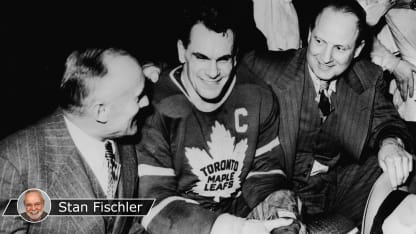Smythe provided Maple Leafs with inspiration in 1942 Final despite ban
Team founder overcame obstacles to deliver between-periods speech in Game 7 against Red Wings

Team founder overcame obstacles to deliver between-periods speech in Game 7 against Red Wings
